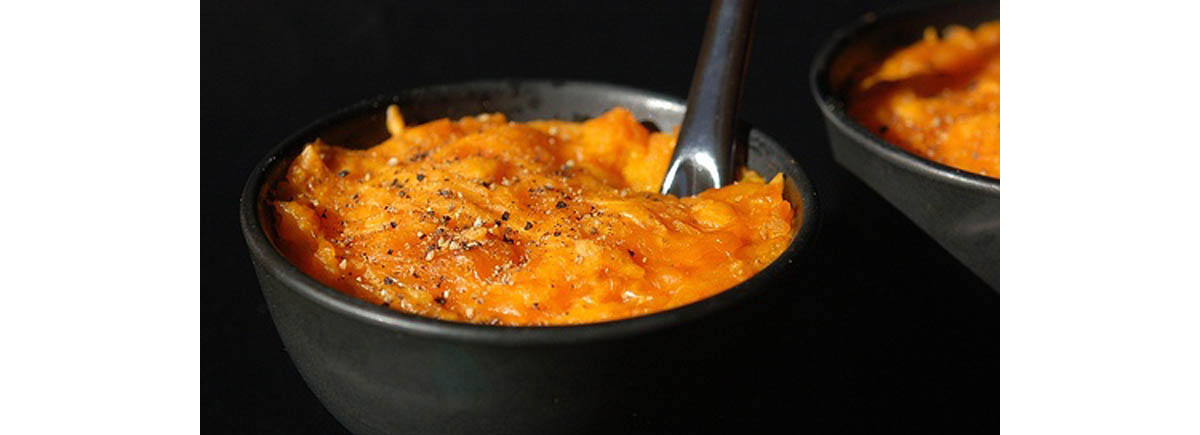Table of Contents
Pumpkins are best known for Thanksgiving pies and jack-o-lanterns, but you can do so much more with them. Its many health benefits definitely justify the pumpkin's reputation as a true power food for the fall and beyond. Why should you include pumpkins in your diet, and how can you prepare them without getting bored?

Why You Should Choose to Add Pumpkin to Your Diet
Summer is the season of fresh fruits and vegetables, and if you are someone who prefers to buy seasonal produce, you'll be disappointed that fall has arrived. Mashed potatoes, cabbage soup, apple pie, and whatever you call those white carrot-like things that are supposed to be good in soups but never really look all that appealing? It is hard to put nutritious and tasty meals on the table every day during the colder months of the year. To make cooking and eating more enjoyable, don't forget to explore everything you can find at the farmer's market — and you will, without a doubt, find pumpkins in abundance.
You don't have to be a seasonal-produce only consumer to enjoy pumpkin, though. Halloween may be over, but there is so much more you can do with pumpkins than carve jack-o-lanterns out of them. Don't let Thanksgiving pumpkin pie be your next association either. The pumpkin is incredibly versatile, and there is no need to get bored with the fruit even if you eat it every week. It can be a hearty soup just as easily as a sweet pie, and that is only the beginning. The fact that a whole, intact pumpkin can keep for months is perhaps the fruit's greatest practical advantage. Of course, the fall's power food will also do plenty for your health.
Pumpkins are high in taste, and low in calories. Yet, they are extremely satisfying. If you have ever had pumpkin soup, you'll know that the pumpkin can be extremely filling. You can definitely not come away from a pumpkin meal feeling like you've had a low-calorie snack.
Surprisingly however, pumpkins really don't have a lot of calories at all: in 100 grams of pumpkin, you'll find only 25 calories! What's more, there is no saturated fat or cholesterol, unless, of course, you choose to add it to your pumpkin dish.
In part, pumpkins are great because of what isn't in them. What is in there there is also pretty impressive, starting with lots of natural anti-oxidants. Vitamin A appears in pumpkins in huge quantities. This vitamin contributes to the health of your skin, mucus membranes, and eyes. It also helps to keep your immune system strong, and is one of the essential vitamins during pregnancy, so if you need a disease-fighting vegetable, add pumpkin to your menu.
Next, there is vitamin C, which is universally recognized as a very important vitamin — not only does vitamin C do wonders for your immune system, it also helps prevent strokes, cardiovascular problems, eye disease, and other serious health problems. Some research even suggests that vitamin C offers some protection against certain forms of cancer.
Vitamin E is often used in facial creams, and is perhaps most well-known for its anti-aging effects. Eating pumpkin regularly just might make you look younger (I really have to fight the urge to insert a winking smiley here!), but vitamin E is definitely a powerful anti-oxidant with a great capacity to the fight free radicals that invade your body.
Folate, the natural form of folic acid, is another nutrient you'll benefit from if you eat pumpkin regularly. Folate keeps your blood healthy and repairs your DNA, and this B vitamin is crucial if you are trying to conceive because it helps prevent birth defects.
The minerals calcium, potassium and phosphorous. Calcium maintains strong bones and teeth, potassium is good for your heart, kidneys, and other internal organs, and phosphorus plays a role in everything from DNA to digestive function and even cancer prevention. Pumpkin is also high in fiber, which keeps your digestive system running smoothly.
Fresh produce is usually much healthier than the canned variety, but pumpkin may be an exception. There is no doubt that fresh pumpkin is much tastier than canned pumpkin, and that you can do a whole lot more with a whole, unprepared pumpkin than you possibly could with purée from a can. Amazingly, however, the nutritional value of canned pumpkin is comparable to that of fresh pumpkin, so if you can't find fresh pumpkin, don't sweat the small stuff and enjoy that, too.
- Photo courtesy of marylise-doctrinal on Flickr: www.flickr.com/photos/marylise-doctrinal/5075550712
- Photo courtesy of satoru_kikuchi on Flickr: www.flickr.com/photos/satoru_kikuchi/4209979119

